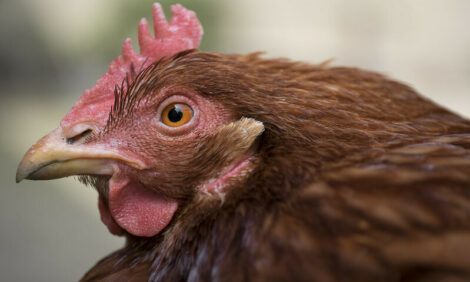



Coccidiosis control: New strategies for a new era
Coccidiosis can be controlled in broilers without antibiotics as long as producers pay closer attention to hatchery coccidiosis vaccination procedures, brooding and stocking rates, Greg Mathis, PhD, president of Southern Poultry Research, told Poultry Health Today.In “no antibiotics ever” (NAE) production, the keys to successful coccidiosis control are vaccination that’s properly and uniformly applied at the hatchery and giving chicks the right amount of brooding time, he said.
Chicks in NAE systems should be brooded until they’re 10 to 12 days old — longer than the 7-day coccidial life cycle — so they have time to ingest sporulated coccidial oocysts, Mathis said.
Managing stocking density is likewise critical during the brooding period, especially with smaller birds that are sometimes brooded less than 7 days. Mathis recommends using half-house brooding or simply reducing stocking density so the birds don’t have too much coccidia exposure before they have a chance to develop immunity from coccidiosis vaccination.
Bioshuttle (hybrid) programs are gaining momentum in the industry. For NAE programs, they consist of coccidiosis vaccination at the hatchery and administration of a non-ionophore anticoccidial given at 2 to 3 weeks of age. Some anticoccidials don’t completely kill coccidia, which is generally beneficial because it allows immunity to develop, he said.
For Mathis, the most logical process for NAE production systems is to vaccinate and rotate non-ionophore anticoccidials as needed. In summer, when coccidial pressure is lower, in-feed anticoccidials can be rested and producers may consider using coccidiosis vaccines alone.
Mathis thinks ionophores, a class of antibiotic used for many years to prevent coccidiosis, will find their way to rotation programs for conventional production schemes, particularly as sensitivity testing demonstrates improved efficacy after not using them for prolonged periods.
Although more alternative nutritional products are being used in NAE production systems to help support gut health and coccidiosis control, testing indicates the results are variable, he continued. This is why Mathis advises producers to rely primarily on vaccines and on FDA-approved anticoccidials.
“There is a clear difference between the control you get with an FDA-approved drug and the alternatives,” he said.









